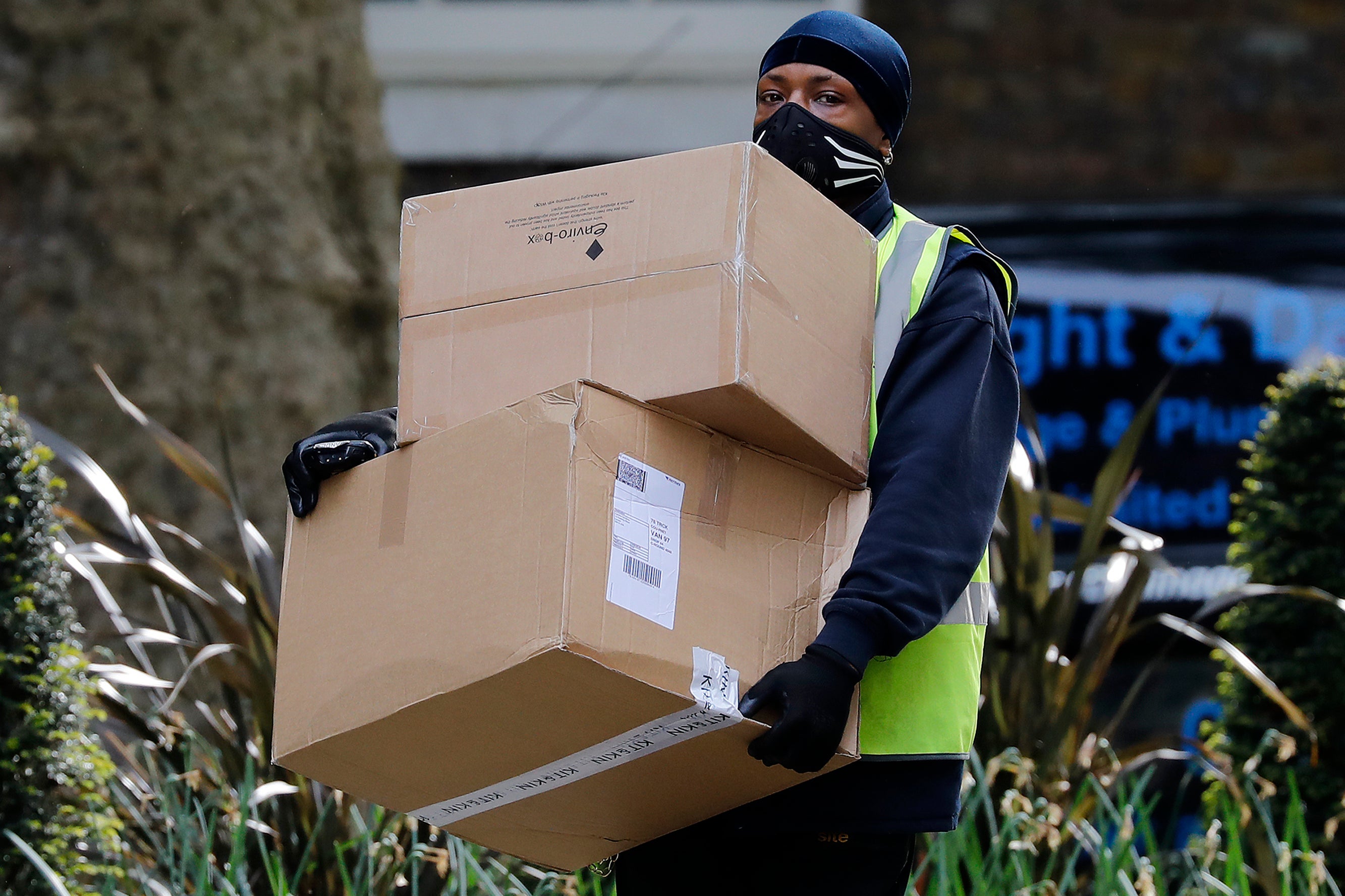What’s the environmental impact of buying online?
Delivering vans expected to make an additional 150,000 trips this year as pandemic pushes shoppers online

Your support helps us to tell the story
From reproductive rights to climate change to Big Tech, The Independent is on the ground when the story is developing. Whether it's investigating the financials of Elon Musk's pro-Trump PAC or producing our latest documentary, 'The A Word', which shines a light on the American women fighting for reproductive rights, we know how important it is to parse out the facts from the messaging.
At such a critical moment in US history, we need reporters on the ground. Your donation allows us to keep sending journalists to speak to both sides of the story.
The Independent is trusted by Americans across the entire political spectrum. And unlike many other quality news outlets, we choose not to lock Americans out of our reporting and analysis with paywalls. We believe quality journalism should be available to everyone, paid for by those who can afford it.
Your support makes all the difference.Britons are expected to buy an extra 145 million presents online this year due to Covid-19 – meaning more than one billion presents will be purchased electronically.
Experts have calculated that the excess packaging from all the presents being delivered online is going to lead to an additional 150,000 trips by delivery vans – resulting in 86,488 tonnes of additional CO2 emissions.
With fewer families seeing each other and many shoppers avoiding the high street, there’s going to be increased pressure on e-commerce supply chains, with 66 per cent of adults buying more products online compared to the start of the Covid-19 pandemic.
In the previous five years, the average adult bought 16.86 presents online.
But 2020 will see this number rise to 19.64 - taking it from 883.5 million bought via the internet in total to more than 1.03 billion gifts this year.
It also emerged that 42 per cent admitted the environmental impact of their online shopping is not a priority for them this year, as they feel they have no other option.
Although 44 per cent still consider it important for packaging to be recyclable or reusable, and 42 per cent believe the wrapping should fit the size of the item.
Robyn MacDonald, packaging design consultant at packaging firm DS Smith, which commissioned the research, said: “Christmas is usually a time where you come together with family and friends to celebrate, and with Covid-19 impacting our in-person celebrations, many are turning online to buy and send thoughtful presents to show their love.
“Businesses need to carefully consider how they pack goods effectively and with sustainable packaging materials to reduce waste over this year’s ‘Covid Christmas’”
It’s not just retailers and shoppers who will be worried about excess packaging either, with packaging experts at DS Smith calculating that the extra weight – when applied to every present he must deliver around the world – will slow Santa down by an hour and 24 minutes.
The study also revealed 42 per cent of adults still intend to deliver their gifts in person this year.
This could be down to a worry about it arriving in one piece as 43 per cent would request a refund were there any damage to their purchases.
And 44 per cent would expect a replacement free of charge, were anything not to be in 'mint condition' when it arrived.
More than a quarter would also look to cancel an order if they found out it was going to arrive late, while 22 per cent would expect a refund.
The research has highlighted the importance of businesses getting deliveries right first time, with only one in six willing to buy again from a brand if their item was delivered damaged.
Just 17 per cent would also be a repeat customer if their package arrived late.
SWNS



Join our commenting forum
Join thought-provoking conversations, follow other Independent readers and see their replies
Comments